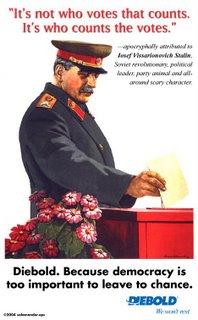
There are varying conflicting debates on the left as to when the Soviet Union became State Capitalist.
Of course amongst the Trotskyists it was always a Degenerated Workers State, even under Stalin.
The theory of Bureaucratic Collectivism, State Capitalism, etc. all evolved out of the debates with Trotsky in the Fourth International during the 1940's by various factions.
Outside of the Trotskyists, Council Communists or Left Communists, as Lenin called them, already defined Bolshevism as State Capitalism and in some cases Nationalist Socialism, as Otto Ruhle did.
Anarchists point out that Lenin himself described the Soviet Union as State Capitalism;"socialism is nothing but state capitalist monopoly made to benefit the whole people,"
Rosa Luxemburg herself a contemporary in the Social Democratic Movement with Lenin, accused the Bolsheviks of creating State Capitalism in the Soviet Union.
This new type of capitalism--properly called state-capitalism--persists to the present day in the ideological dress of 'socialism."
Well here is an interesting historical flashback from Time Magazine, I found on the web. We can officially date State Capitalism as being fully implemented under Stalin in the summer of 1931. Though it was already evolving from earlier decisions the Bolsheviks made.
TIME.com: Stalin Shifts the Helm -- Jul 13, 1931
Captain Lenin, Captain Trotsky and today Captain Stalin have never been afraid to alter Russia's course—the course of over one-seventh of the world—by a sudden titan's tug at the helm. Last week Captain Stalin tugged.
He issued no decree. He permitted the Press of Russia to disclose a speech he had made June 23 to a group of Soviet industrial executives. So awful is Comrade Stalin's power that not one of his many hearers had publicly breathed a syllable. His words, according to Moscow correspondents, will soon be law:
¶ "We have not yet reached our Communist goal," said Stalin with devastating simplicity. "Meanwhile emergency measures are necessary. ... It is unbearable to see a locomotive driver receiving the same wages as a bookkeeper!"
The wages of Soviet locomotive drivers and other skilled proletarians will be raised, Stalin indicated, above the wage level of unskilled proletarians and despised white collar yes-men. Up to last week the theory of Soviet wage scales (varied some-what in practice) was approximate wage equality between the skilled and the unskilled. With a mighty tug Stalin seemed to shift the whole Soviet wage structure —in a direction seemingly opposite to Communism.
¶"Break up the family!" was one of Russia's bywords when she went on the Five-Day Week (TIME, Oct. 7,1929). Factories began to run every day of the week with four-fifths of their personnel, the other one-fifth resting. Thus each man or woman has, under the present Five-Day week, one day of rest after each four of work; but the "rest day" of husband and wife may not be the same, thus tending to disrupt the family.
J. Stalin, happy family man, now said that factories in which the Five-Day Week does not seem to work well should return to the old system of five days' work and the same rest day for everyone at once.
¶. Still more striking was the Dictator's word that management of factories a la Soviet by voting councils of the workers must in some degree give way to management by a manager with power to manage and responsibility to show a profit. Obviously this is "State Capitalism." The State being the owner for whom the manager must earn a profit.
See:
Find blog posts, photos, events and more off-site about:
statecapitalism, USSR, Russia, Stalin, Trotsky, FourthInternational, Lenin, Anarchism, Anarchist, Bureaucratic Collecitivism, Schactman, CLRJames, RosaLuxemburg, Time, 1931, SovietUnion, Bolsheviks, OttoRuhle, CouncilCommunists, LeftCommunists,
1 comment:
This is really an awesome article. Thank you for sharing this.It is worth reading for everyone. slotxo
Post a Comment